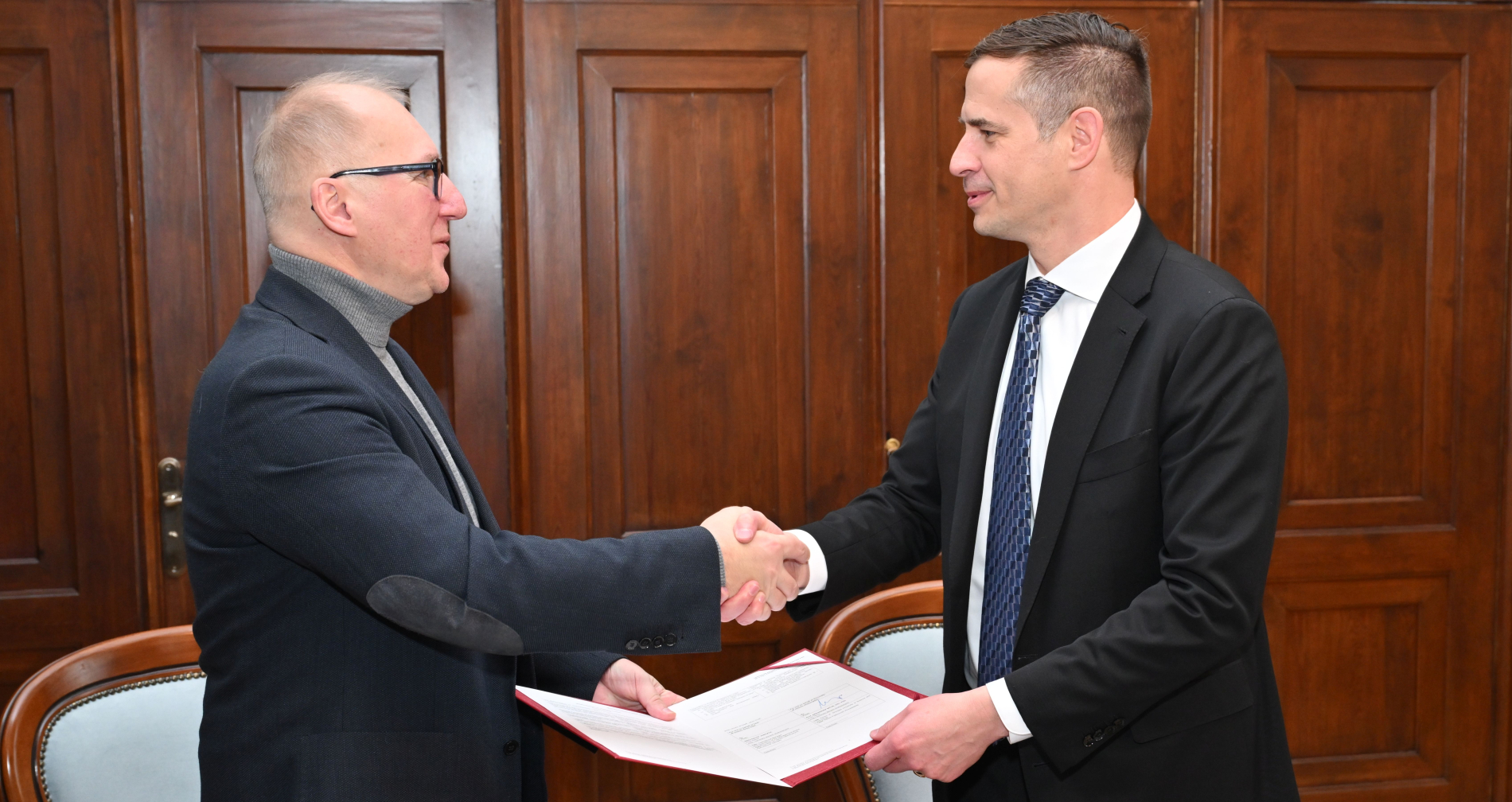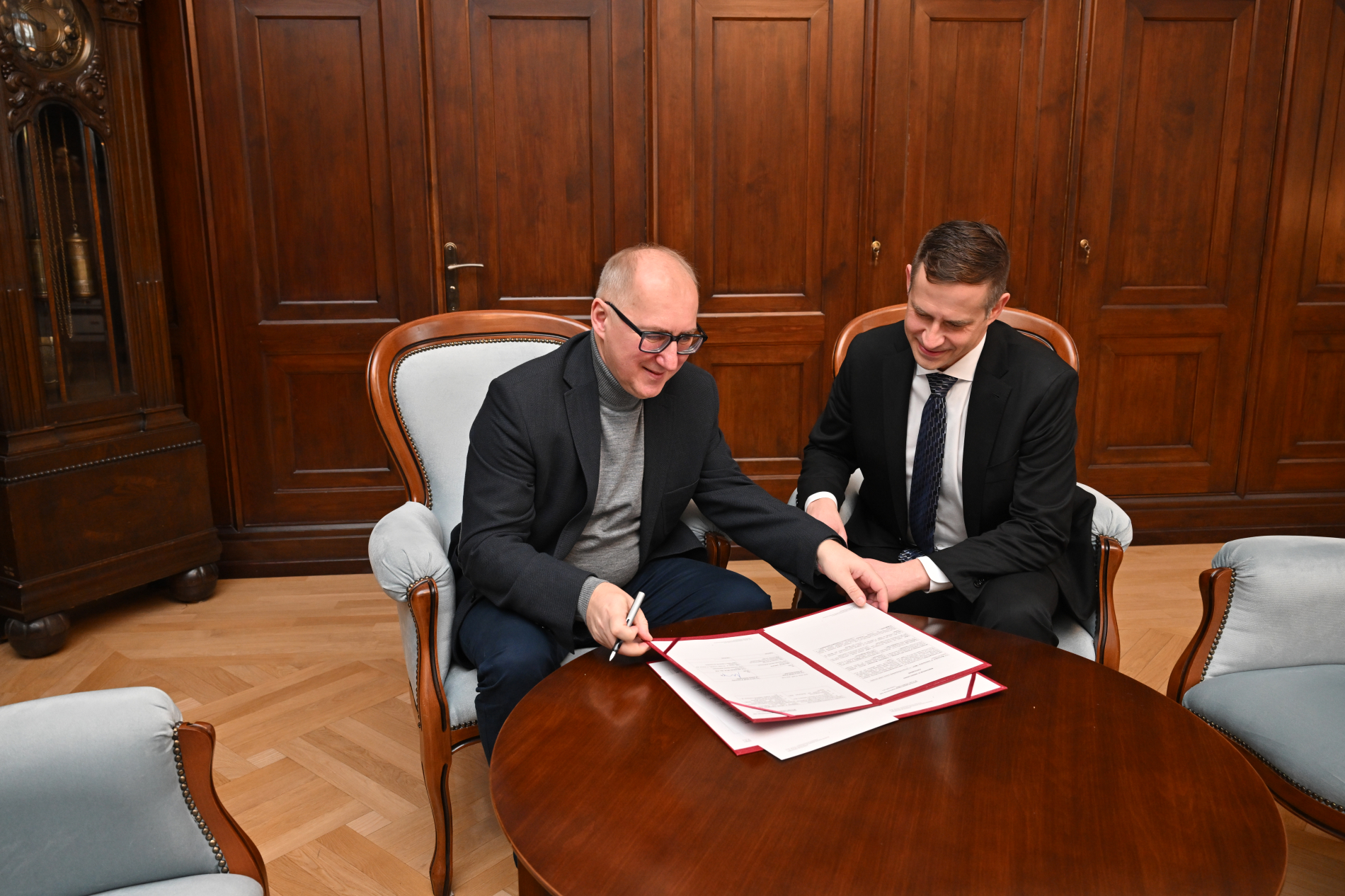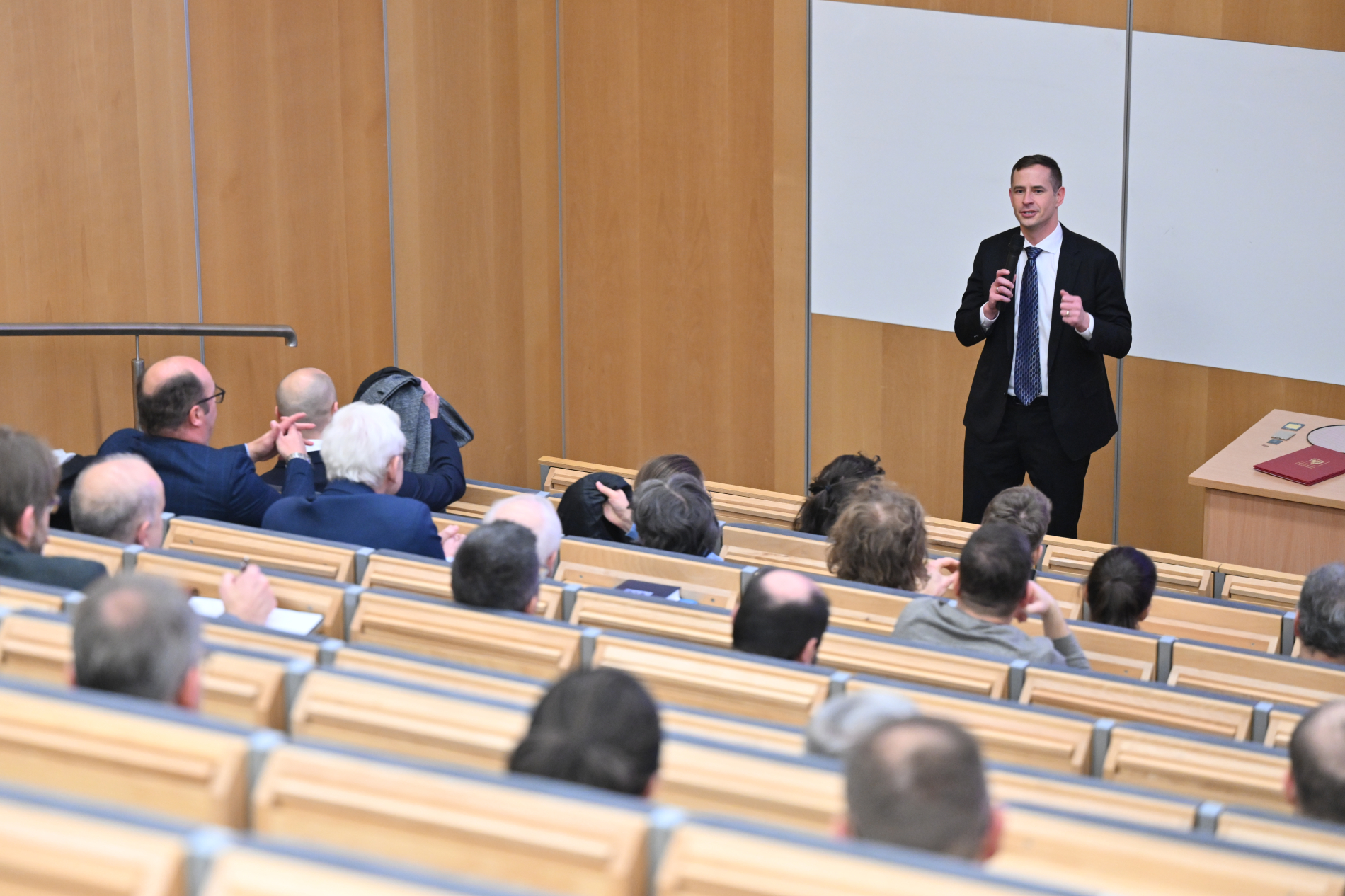YOUR BROWSER IS OUT-OF-DATE.
We have detected that you are using an outdated browser. Our service may not work properly for you. We recommend upgrading or switching to another browser.
Date: 01.02.2024 Category: general news

Intel's new production facility near Wrocław is due to start operations in three years, but the US mogul is already starting to cooperate with our university. Our joint plans include conducting research projects, mentoring researchers working on their dissertations, and developing a new curriculum.
The Semiconductor Integration and Test Facility, Intel's newest production facility in Europe, will be built in the administrative district of Miękinia near Wrocław. The company plans to invest up to 4.6 billion USD, which will increase its production capacity and help meet the growing demand for advanced semiconductors. Construction of the facility will not begin until after the European Commission's approval, with the first phase of the development project scheduled for completion in 2027.
 An Intel delegation, headed by Gregory Anderson, CEO of the future facility, visited Wrocław University of Science and Technology on Wednesday. During the meeting with Professor Arkadiusz Wójs, Wrocław Tech Rector, a letter of intent for cooperation was signed.
An Intel delegation, headed by Gregory Anderson, CEO of the future facility, visited Wrocław University of Science and Technology on Wednesday. During the meeting with Professor Arkadiusz Wójs, Wrocław Tech Rector, a letter of intent for cooperation was signed.
“The development of a large plant near Wrocław will have an enormous impact on the entire region, including our university. We want to support the company in the development of technology and staff, as it also opens a big opportunity for us. Particularly in areas such as microelectronics and photonics, which are at the heart of Intel's focus,” says Prof. Arkadiusz Wójs.
The signed agreement involves areas such as joint research and development projects, the development and adaptation of the education curriculum to bring it closer to the real needs of industry, and lectures to be delivered by Intel specialists.
“Among other things, we plan to build a large interdisciplinary research centre specialising in micro and nanosystems. The facility will be equipped with unique apparatus, which will allow us to carry out useful research in this area and prepare our staff for collaboration with Intel,” the Rector added.
 The agreement will also benefit students. They will gain opportunities including internships as part of Intel's regular internship programme, specialised workshops and hackathons, as well as mentoring for those working on master's projects.
The agreement will also benefit students. They will gain opportunities including internships as part of Intel's regular internship programme, specialised workshops and hackathons, as well as mentoring for those working on master's projects.
“This last element means that Intel will present issues from which some students will be able to choose topics for their master’s theses. The work will be done under the supervision of company specialists and researchers from our faculty,” explains Prof. Rafał Walczak, Dean of the Faculty of Electronics, Photonics and Microsystems.
The Semiconductor Integration and Testing Facility will hire over 2,000 staff – mostly technicians (70 per cent). The remaining personnel will be engineers. Production facility CEO Gregory Anderson hopes that the vast majority will be graduates of Polish universities.
“This is my second visit to Poland and this week almost entirely involves visits to universities. It’s the collaboration with them that’s one of the key conditions for the success of our project,” stresses Gregory Anderson. “Initially, the collaboration with Wrocław University of Science and Technology will take the shape of consultations, during which we’re going to put forward our needs, but also help the university to thoroughly understand the technologies we deal with. All this is being done to best prepare future graduates,” he adds.
During the visit to Wrocław Tech, Intel employees also met with researchers and students. During the meetings, they outlined plans for the construction of the facility and talked about the scope of activities planned there and the opportunities for cooperation.
Intel's investment in Poland, combined with an existing so-called silicon wafer production facility in Ireland and a second planned facility in Magdeburg, Germany, will help create a comprehensive state-of-the-art supply chain for semiconductor chip manufacturing, a project first of its kind in Europe.
Our site uses cookies. By continuing to browse the site you agree to our use of cookies in accordance with current browser settings. You can change at any time.